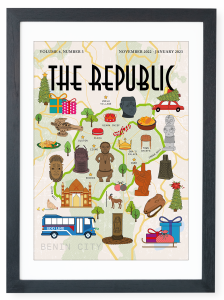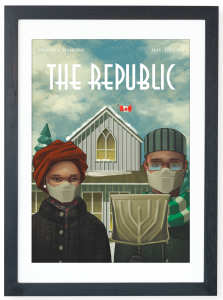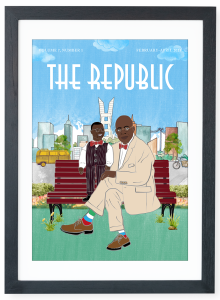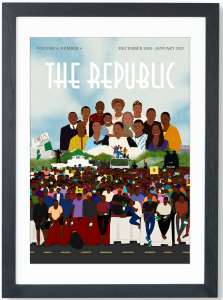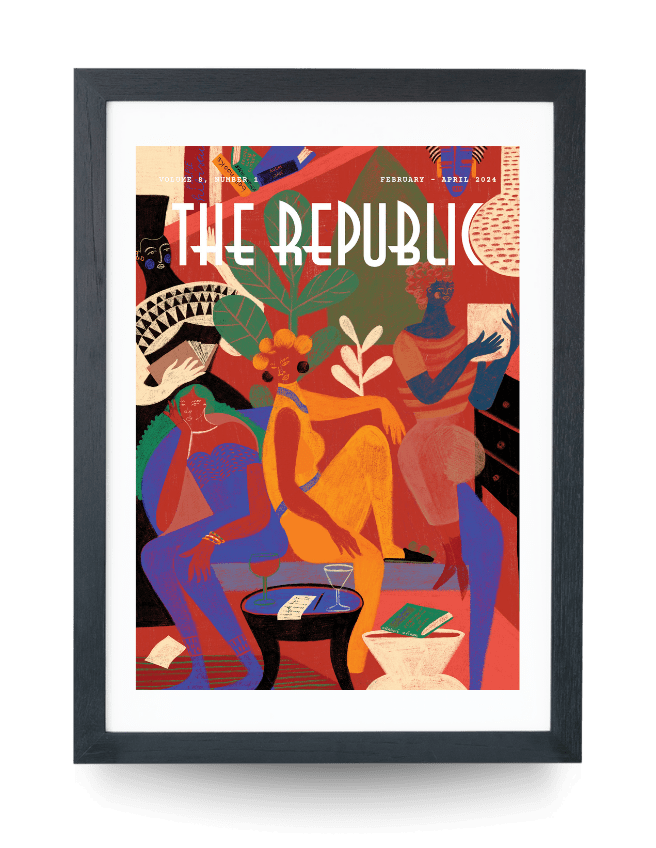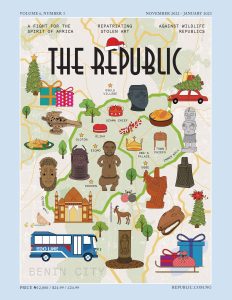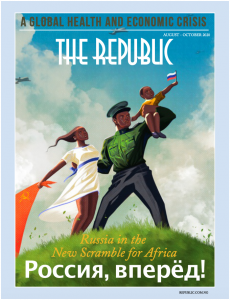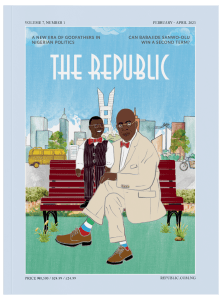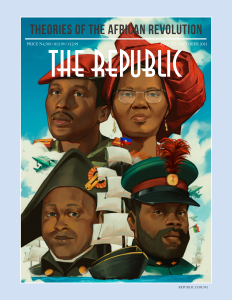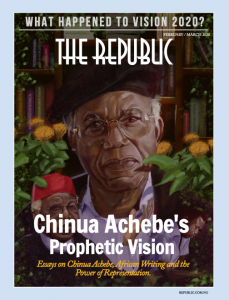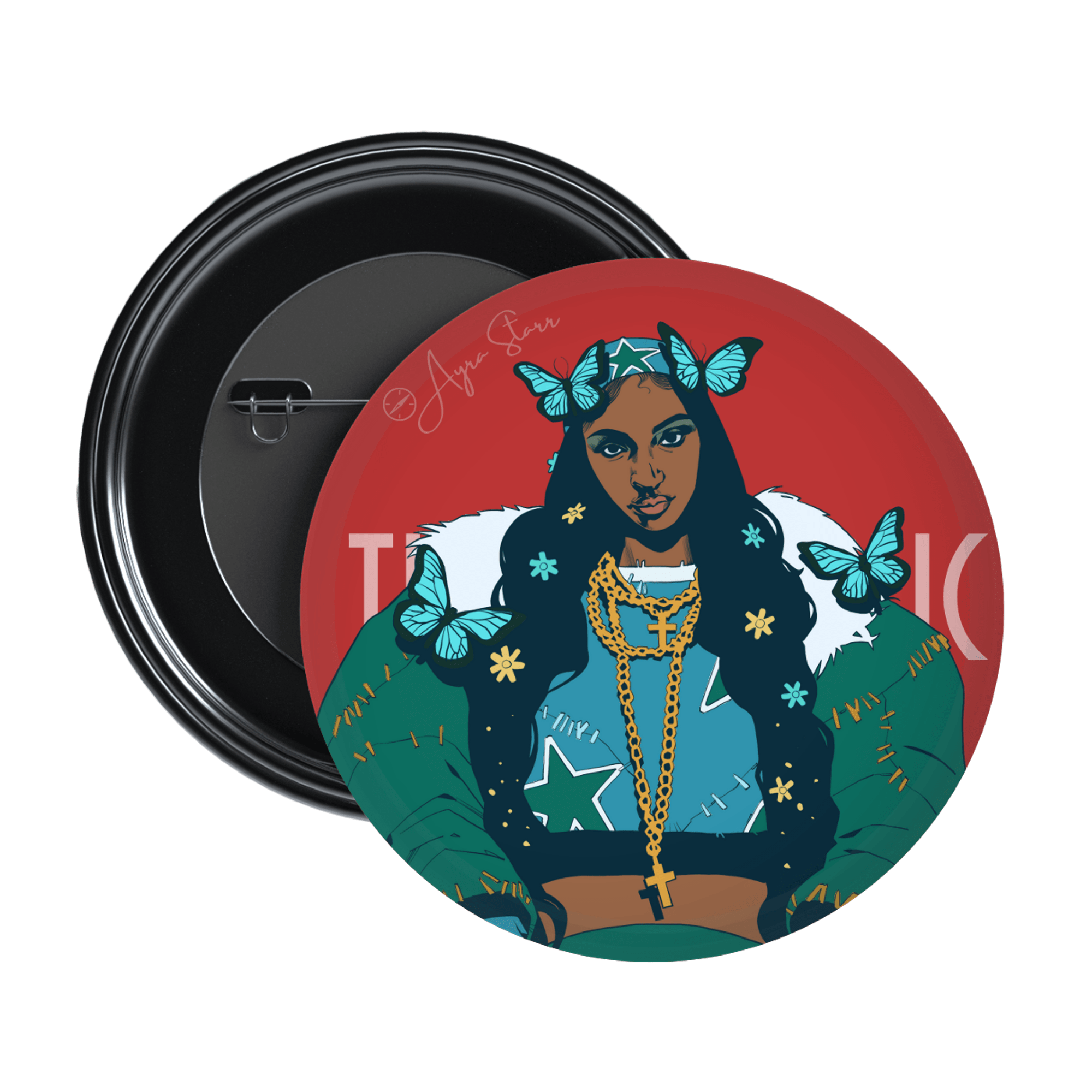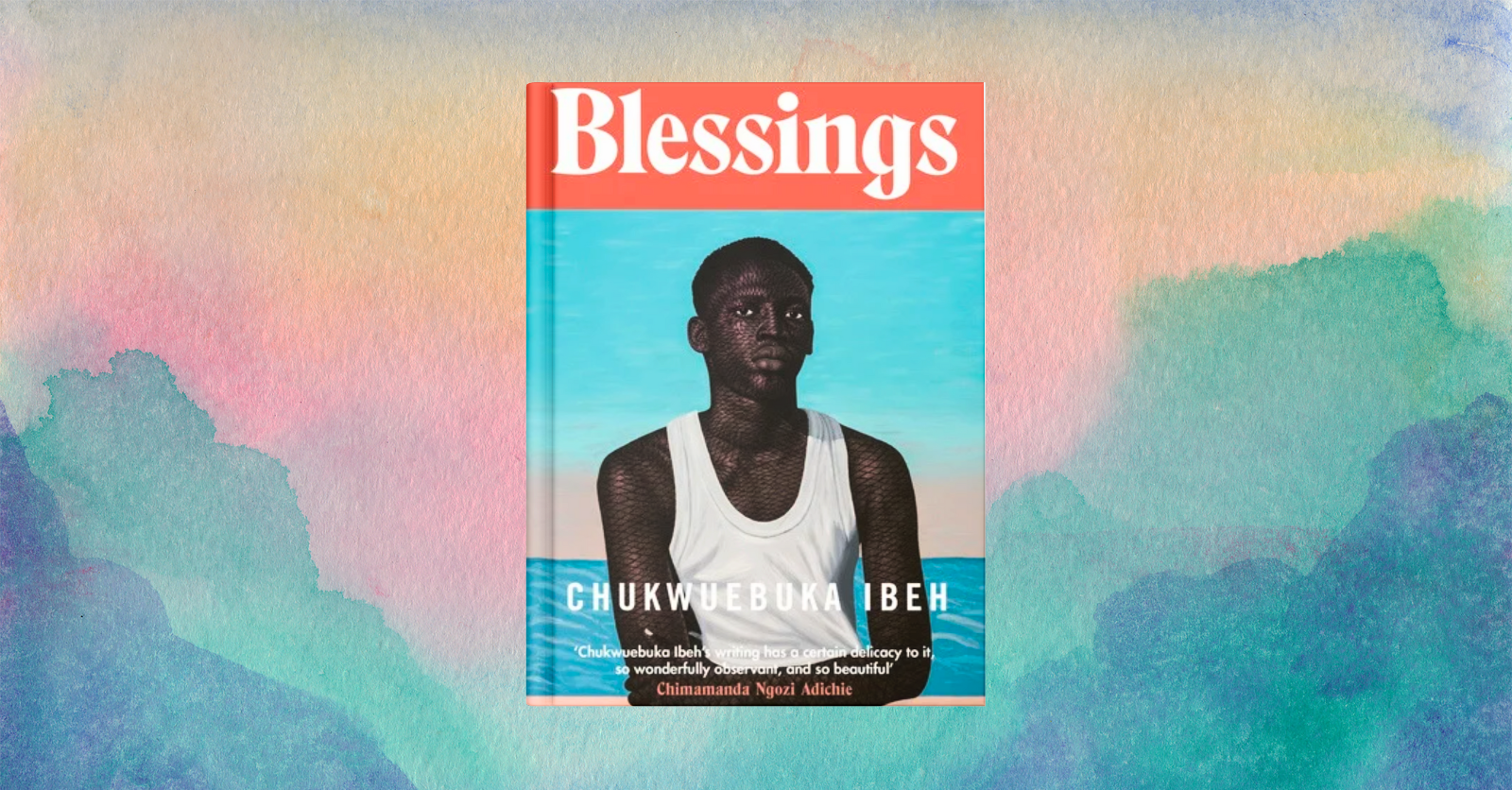
Blessings by Chukwuebuka Ibeh / THE REPUBLIC.
THE MINISTRY OF ARTS / BOOKS DEPT.
A Worthy Heir to Purple Hibiscus

Blessings by Chukwuebuka Ibeh / THE REPUBLIC.
THE MINISTRY OF ARTS / BOOKS DEPT.
A Worthy Heir to Purple Hibiscus
In December 2018, Chukwuebuka Ibeh joined 21 other emerging writers for the 15th edition of the Purple Hibiscus Trust Creative Writing Workshop. The workshop was easily the most revered literary event on the continent, partly because it was organized and hosted personally by Chimamanda Ngozi Adichie, the most influential Nigerian writer since Chinua Achebe and partly because of its enviable alums, which includes celebrated Nigerian writers, essayists, poets and performers like ’Pemi Aguda, Wana Udobang, Bassey Ikpi, El-Nathan John, Akweke Emezi, Chika Jones, and Dare Segun Falowo. Many apply for the singular reason of meeting the year’s coterie of tutors and experiencing the rare privilege of having their voices shaped by them. But even fewer receive the workshop’s ultimate privilege, a co-sign from Adichie herself, bestowed on a handful of writers over the years.
At the workshop award ceremony for Purple Hibiscus Trust Workshop’s 2018 cohort, Adichie singles out Ibeh. She speaks glowingly of his craft, compares his work to hers and says she sees herself in him. This is an astute observation, an augury that comes full circle with the arrival of his debut novel, Blessings. Adichie makes the uncharacteristic choice to blurb this debut nearly a decade after she stopped blurbing for other writers.
A QUEER IGBO COMING OF AGE
In Blessings, we meet Obiefuna twice. In the first chapter, as a teenager unsure of his place in the world and the rightness of his secret desires. In the second, as the treasured child of Uzoamaka, Obiefuna’s mother, born after years of childlessness. We know from both chapters that Obiefuna is queer; his parents already know, even if they won’t name it, and he doesn’t have a word for it yet. Uzomaka thinks he is ‘special’, while Anozie, his stoic and emotionally stunted father, considers him ‘abnormal’. The arrival of Aboy, a slightly older distant relative brought from the village to serve his father, awakens Obiefuna’s dormant desire and triggers a series of events that lead to Obiefuna being exiled by his father to a seminary in Enugu.
Uzoamaka, Obiefuna’s brooding mother, is the only other character whose mind and motivations are not veiled from the reader. It is an inspired stylistic choice because, like most teenagers, even queer ones, Obiefuna quickly gets sucked into the intrigue of the seminary and rarely contemplates the consequences of his father’s actions on him, his mother and his younger brother Ekene. Instead, he concerns himself with pining over Aboy, whose punishment for their moment of indiscretion is multiple times worse than Obiefuna’s ‘exile’ and later the petty dramas of the seminary. He feels remorse often in the novel but is too ashamed of being outed to his mother ever to defy his father.
Uzomaka’s grief at being separated from her ‘special’ son eats at her, and she struggles throughout the novel. Her sorrow amplifies when Uzoamaka is greeted with silence when she seeks to reconnect with Obiefuna and the arrogance she must endure from Anozie, who refuses to explain his decision to banish him. Her private grief eventually manifests externally, and even an eventual reconciliation with Obiefuna and reunification of her family when he graduates from the seminary provides only temporary relief.
The book drags in its final arc, introducing an adult Obiefuna, who falls in love and is betrayed by Miebi, his much older and eccentric boyfriend, as the hysteria following the passing of the Nigerian Same-Sex Marriage Prohibition Bill rages in the background and intrudes on their lives.
shop the republic
TOO MUCH OF A GOOD THING
It is impossible to tell if Ibeh’s time at the Purple Hibiscus Trust Workshop influenced the choices made in his debut novel, Blessings. But, once you notice them, the thematic and tonal parallels between Ibeh’s novel and Adichie’s debut, Purple Hibiscus, are almost impossible to ignore.
Like Purple Hibiscus, Blessings is unapologetic about being a bildungsroman. It is primarily concerned with Obiefuna and obsessively documents his journey into adulthood before, during and after the seminary. This choice allows us to experience Obiefuna’s queerness as a central influence in his life and follow his journey as he goes from naive to complicit to defiant, especially as he negotiates with the boundaries of his expression within the repressive dysphoria of boarding school life. Ibeh’s depictions of the same-sex boarding school experience are delightfully lurid. They will resonate with the book’s Nigerian millennial readers, many of whom have longed to see their experiences documented in literature.
Ibeh’s preoccupation with Obiefuna’s experiences is one way Blessings mirrors Purple Hibiscus, along with its themes of adolescent desire, transgressive love, and disciplinarian fathers who drape their self-serving actions with the mantle of chivalrous duty. But this is where the similarities end.
shop the republic
Adichie uses a first-person point-of-view to simulate intimacy, so Ibeh chooses to train the usually omniscient third-person point of view on a single character, or two in the case of Blessings. The result is that Obiefuna is overdeveloped, but the book’s supporting characters are unremarkable and quickly forgotten.
This lack of interiority flattens many of the novel’s pivotal moments. The attempts to position Ekene as a foil to Obiefuna fail to capture the imagination because Uzoamaka, our other narrator, barely interacts with him in the novel. Ekene comes across as obtuse instead of complicated. Obiefuna’s romantic relationships in the seminary are intense but shallow. His decision to participate in a hate crime, though foreshadowed, lacks bite. It is the same in his dalliance with the seminary priest, who he discovers is a hypocrite struggling with sins for which he has punished students. This lack of interiority is most egregious in how Ibeh depicts adult Obiefuna’s relationships and ‘circle’ of queer friendships.
Not even Uzoamaka, who has whole chapters dedicated to her, or Miebi, Obiefuna’s true love, are compelling enough characters to match the intensity and care with which Obiefuna is crafted onto the page. It is a fatal flaw in an otherwise captivating debut.
shop the republic
THE HERITAGE OF LANGUAGE
In 2001, researcher Herbert Igboanusi published a paper about the distinctive stylistic and linguistic flair Nigerian writers of Igbo heritage bring to Nigerian literature. This sentiment has been echoed informally in Nigerian literary circles and is one of the justifications used to connect Adichie as a literary successor to Chinua Achebe, even though their subject matter differs vastly. This linguistic heritage and ability to lend an air of sophistication to the very undignified emotions that typify human fallibility is what I suspect Adichie recognized at the Purple Hibiscus Trust Workshop and champions in Ibeh’s prose in Blessings.
The language in Blessings is quaint but rich, flush with words that require some dexterity to use in a novel about a teenager’s coming of age. But Ibeh is surefooted as he unravels the complexities of Obiefuna’s thoughts, desires and contradictions with an almost virtuosic command of his vast and frankly intimidating vocabulary. The result is exquisite imagery deployed with excellent pacing. The novel’s true highlight is this ability to invite the reader into Obiefuna’s interior life and compel them to empathize with Obiefuna’s struggles.
The effect of such high language used with such ease sets Ibeh apart as a generational talent. It lends an air of authority to Blessings that demands that we take its exploration of queerness, familial fractures and chosen family with as much solemnity as Ibeh does. It will be an experience to witness him tackle meatier topics⎈




